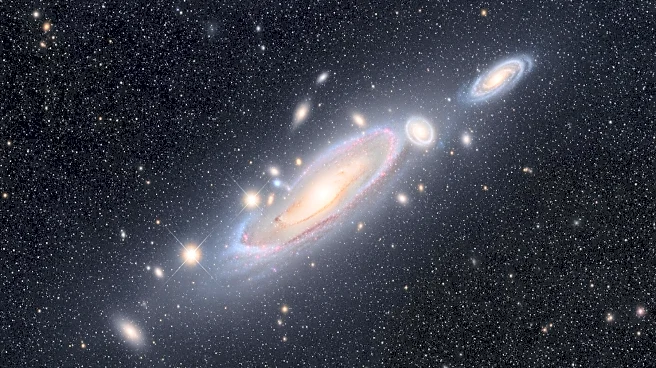What's Happening?
A new study has proposed that the universe's expansion may be decelerating rather than accelerating, challenging the long-held belief in the constant nature of dark energy. Researchers analyzed Type Ia supernovae, which are used to measure cosmic expansion,
and found that the brightness of these supernovae correlates with the age of stars in their host galaxies. This correlation suggests that the universe has entered a phase of decelerated expansion, with dark energy evolving more rapidly than previously thought.
Why It's Important?
If confirmed, this study could lead to a major paradigm shift in cosmology, altering our understanding of dark energy and the universe's expansion. The findings could impact theories about the fate of the universe and the nature of cosmic forces. It also addresses the Hubble tension, a discrepancy between local and early-universe measurements of the Hubble constant, potentially narrowing the gap and refining cosmological models.
What's Next?
Further research is needed to confirm these findings, including measuring host-galaxy ages for a larger set of supernovae. Upcoming facilities like the Rubin Observatory and Roman Space Telescope will provide more data to test these hypotheses. If the age trend persists, it could become a standard factor in distance measurements, influencing future cosmological studies.
Beyond the Headlines
This study highlights the importance of considering the physical properties of galaxies in cosmological measurements, suggesting that the universe's expansion rate may be influenced by factors beyond dark energy. It underscores the need for a more nuanced understanding of cosmic forces and their interactions.
















